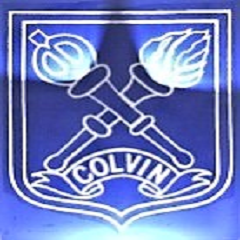
Gilbert Colvin Primary School
Religious Education
At Gilbert Colvin Primary school, we believe that every child deserves an education which is exciting and which promotes diversity.
Our children are provided with a rich, high-quality religious education which includes opportunities to visit places of worship, attend pop-up festivals that are held at school, engage in challenging discussions which enable them to experience a sense of excitement while helping them to develop respect and understanding of different religions and worldviews within their community.
Intent
Our RE curriculum is designed with a clear intent. One of its primary objectives is to enable pupils to acquire knowledge about and develop an understanding of a diverse array of religions and worldviews. This involves delving into the core beliefs, practices, and historical contexts that define these various perspectives.
Furthermore, our curriculum aims to foster the ability of pupils to express their ideas and insights regarding the nature, significance, and impact of religions and worldviews. This goes beyond rote memorisation and encourages pupils to critically engage with the subject, exploring its implications for individuals and societies.
In addition to knowledge and expression, our RE curriculum places a strong emphasis on skill development. Pupils are equipped with the necessary skills to engage thoughtfully and seriously with religions and worldviews. This includes analytical and critical thinking skills, as well as the ability to navigate and appreciate the complexities inherent in diverse belief systems.
Our RE curriculum is a holistic approach to religious education, combining knowledge acquisition, expressive capability, and skill development. By addressing these dimensions, we aim to cultivate well-rounded individuals who can engage with the richness and diversity of religious and worldview perspectives in a meaningful way.
Implementation
At Gilbert Colvin, our programme for RE follows the guidelines set out in the 'Agreed Syllabus for Religions Education 2021-26, LB Redbridge & Havering'.
In implementing our RE curriculum at our school, we recognise the importance of providing age-appropriate and meaningful learning experiences for our pupils. For Reception, we have allocated 15 minutes per week for RE teaching, totalling 10 hours over the academic year. This brief but focused exposure introduces them to foundational concepts in a way that aligns with their developmental stage.
Moving on to Key Stage 1, we have dedicated 36 hours of teaching throughout the year, organised into one-hour blocks. This extended time allows for a more in-depth exploration of various religious and worldview topics. The structured hour-long sessions enable pupils to delve into specific themes, engage in discussions, and participate in activities that promote a nuanced understanding of diverse perspectives.
Similarly, in Key Stage 2, our RE curriculum continues to evolve to meet the developmental needs of older pupils. Key Stage 2 pupils receive a total of 40 hours of teaching over the year, also organised into one-hour blocks. This extended timeframe allows for a more comprehensive exploration of complex religious and worldview concepts. It provides ample opportunities for pupils to develop critical thinking skills, engage in thoughtful discussions and participate in activities that foster a deeper appreciation for the diversity of beliefs and practices.
We help children develop their understanding of a range of religions and worldviews by:
- Exploring the way different people celebrate and why certain traditions are important to their belief.
- Asking questions to deepen their understanding of religions and worldviews
- Discussing similarities and differences between how people celebrate and different
- Participating in challenging discussions and developing the skills and knowledge needed to be able to express their thoughts and opinions on religions and worldviews.
 |
 |
||
|
|
||
.png) |
 |
||
|
|
Impact
The impact of our RE curriculum is carefully monitored through a robust formative assessment process, ensuring that pupils' understanding and engagement is continuously evaluated. Teachers play a pivotal role in this process by employing high quality questioning techniques during lessons to gauge pupils' comprehension, challenge their thinking, and encourage meaningful discussions about the diverse religious and worldview concepts covered in the curriculum.
Teacher observations focus not only on individual contributions but also on collaborative efforts within group activities. This provides insights into how well pupils are able to articulate their thoughts, engage with peers, and develop a shared understanding of the topics being explored.
Teachers offer immediate feedback during lessons, addressing misconceptions, reinforcing key concepts, and praising insightful contributions. Additionally, written feedback is a crucial element of our assessment approach. It serves as a record of individual progress, offering specific guidance on areas for improvement and commendation for achievements.
Children are encouraged to document 3–4 pieces of work for each unit taught. This documentation occurs on a half-term basis, allowing for a regular and reflective compilation of their achievements and understanding. This practice not only supports the assessment process but also encourages pupils to take ownership of their learning journey, fostering a sense of pride and accomplishment in their RE studies.
What our children think about Religious Education at Gilbert Colvin Primary School
|
|
||
|
|||
|
|||